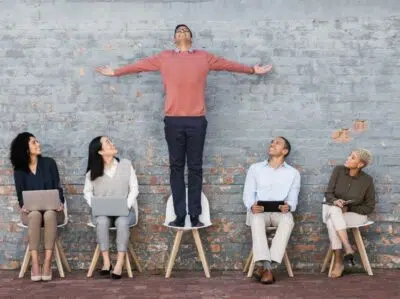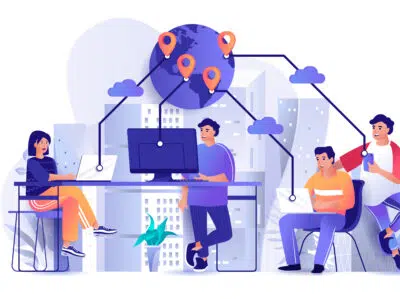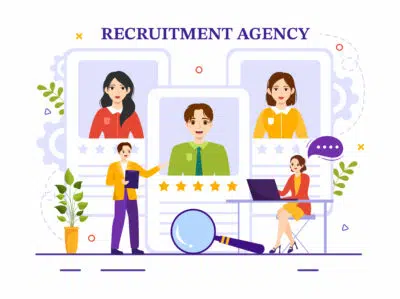A Spectrum of Change: Transgender Awareness Week

Why Is Employee Autonomy at Work so Important and How It Improves Engagement
November 16, 2023
Work Culture, brand name or Pay Cheque: What should matter more to Early Career Professionals?
November 23, 2023
As November 13 to 19 marks Transgender Awareness Week, it's an opportune time to reflect on the journey of the LGBTQIA+ community in India and the persisting challenges they face. Over the years, there have been significant strides towards inclusion and acceptance, yet the path to equality remains fraught with obstacles. In this article, we delve into the evolving landscape of LGBTQIA+ rights and explore the pressing issues that continue to impact the lives of these individuals, shedding light on both the progress made and the work that lies ahead in creating a more inclusive and equitable society.
Workplace Inclusion
We have seen a plethora of positive changes in terms of workplace inclusion. Big corporations are now having special D&I verticals to make sure that people from the LGBTQ+ and other marginalised diverse communities get equal opportunities. We see the implementation of new policies to accommodate these individuals and make them feel like they belong as much as anyone else. Some notable examples of the changing landscape are mentioned below :
Axis Bank has introduced a policy named ‘Come As You Are’ for employees and customers that allows them to avail several benefits, like employees listing their partners for mediclaim benefits irrespective of gender, sex, or marital status, being able to dress according to their gender expression, and customers getting the option to open and operate joint bank account or term deposits with a same sex partner.
Another Industry giant, L'Oreal India, now offers paid paternity or co-parenting leave to their employees who may be same-sex parents.
But we still have a long way to go. Even with the rapid changes being ushered in, there is still a huge gap in opportunity for these people. As per a research by Careernet, even now, employers hire candidates from the LGBTQ+ community primarily for non technical and entry level roles. This disparity is something that needs to be consciously worked upon in order to truly celebrate the spirit of inclusion.
Social Acceptance and Representation
Social acceptance for the LGBTQ+ community is a gradual process in which we have seen some remarkable achievements in the last few years, specifically in the upper middle class, where parents are now more open towards their kids coming out and asserting their gender and sexual identities.In 2017, a significant milestone was achieved when Jyoti Mondal, a 30-year-old woman from West Bengal, made history as India's first transgender judge. Following in her footsteps, Sathyasri Sharmila, aged 36, recently broke barriers to become the country's first transgender lawyer. In another inspiring tale of resilience, Prithika Yashini emerged as India's pioneering transgender sub-inspector. Her remarkable journey included overcoming an initial setback where she was declared one mark short of passing. Undeterred, Prithika Yashini persisted and, after having her score re-evaluated in the physical examination, emerged triumphant. These remarkable individuals represent just a few examples of the many 'firsts' we've witnessed in recent years, showcasing the incredible progress made by the transgender community in India.
Media and Entertainment
Media has always been a reflection of society. As society evolves and becomes more accepting of the LGBTQIA+ community we see the same being reflected through substantial and heartwarming representations in media and entertainment as well. Amazon Prime’s breakthrough web series, Made in Heaven, represented the fight against Sec. 377 in its first season and the struggle for social justice and acceptance for trans persons in the second season. Both seasons saw a gay and trans character occupy centre stage which has hardly ever happened in Indian entertainment before.
But beyond these huge wins, there are still very basic issues that the community struggles with on a daily basis. A same-sex couple shared with us their ordeal in finding a house for themselves in the IT capital of India, Bangalore, where the broker told them to just say that they are cousins and not be open about their relationship as it would cause issues with the landlord.
Despite the Transgender Act 2019, abolishing all forms of discrimination against the community, we still see these conscious and unconscious biases embedded deep within individual minds and collective attitudes; be it accommodation, access to healthcare, places of worship, mental health facilities, educational institutes, financial institutions and even public spaces. Beyond the piece-meal measures taken, it's crucial to address the deep rooted bias at all levels of society. And to do so, the government, schools, universities and NGOs need to come together and devise instructional policies and measures to do away with such discrimination.
Doing so will help India move forward on its path toward a more fair and accepting future for the LGBTQIA+ population.


